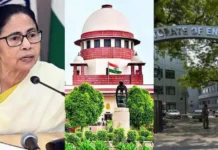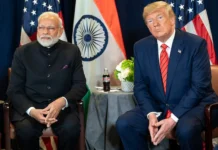The primary objective of the Reserve Bank of India is to maintain financial stability. But I prefer to direct your attention to the financial markets. The financial market market cap is currently 5 trillion. The real economy is at 4 trillion, which means that the financial economy is now greater than the real economy. What do you make of this massive expansion in the financial economy? As a regulator, we want to hear your thoughts.
Shaktikanta Das: No, you cannot draw any conclusions from these numbers. There’s a lot to it. It has a lot more noise. But all the metrics and indicators of our Indian economy and our financial sector seem very stable right now.
What you’re probably implying is that the question of some part of the market or some segment of the market, is it overheating? That is, I think, to put it bluntly, I think that’s the question you’re asking.
Unlock Leadership Excellence with a range of CXO courses
| The college offers | curriculum | Website |
|---|---|---|
| IIM Lucknow | Chief Executive Officer Program | interview |
| Indian School of Business | ISB Chief Technology Officer | interview |
| IIM Lucknow | Chief Operations Officer Program | interview |
I think SEBI is involved with it. So, let me not intrude into SEBI’s domain and start talking about stock markets. I think SEBI is fully aware of what is happening in the markets and we have our regular interaction with SEBI as part of FSDC, Financial Stability and Development Council, we also have a sub-committee which is chaired by the Governor.
The Chairperson, SEBI, is its member. Under its auspices, we have an early warning group that meets periodically and discusses what is happening in the financial markets.
And if there is any discomfort, the early warning group addresses it and brings it to our attention.
As far as we are concerned, that is how we deal with it. At the moment, as far as stock markets are concerned, I leave it to SEBI to talk about it.
Other indications, wherever we feel that we have views on the markets which are not necessarily within our domain, we share our views with SEBI.
What about the retail frenzy in the futures and options markets? Given that futures and options markets can indirectly impact retail balance sheets, are you monitoring them?
Shaktikanta Das: Yes, the Early Warning Group is monitoring it. We are monitoring it along with SEBI and RBI. In fact, currently in options and futures, the volumes are very large. I think you’re probably referring to it, it’s probably bigger than the nominal GDP of the country. Therefore, we have discussed these issues with SEBI. I think SEBI has taken some steps and they are looking into it and I think they will deal with it.
In the past, the Reserve Bank of India has taken proactive measures when they felt there was a bubble in the real estate sector. The economy is growing and the real estate sector is also growing. What are your thoughts on the expansion taking place in the real estate sector? This is something the Reserve Bank of India has done in the past.
Shaktikanta Das: You see, we are seeing growth in all segments of the credit market. We took some steps in November last year.
So wherever we saw some signs of potential stress, in fact, at the time we took action, there was nothing really happening, nothing to worry about. But our conclusion was that if we leave it as it is, if we leave it unattended, or if we leave it as it is, it could lead to a potential crisis at some future date.
So, we have done the work in advance and you will have seen that, in fact, the numbers speak for themselves, retail credit, unsecured retail credit, other personal loans, what they call in banking terms or credit card balances, or for that matter credit to banks NBFCs. Granted, they all moderated.
They are all restrained. And we wanted to bring a certain level of due diligence and discipline into the system and that has been brought. So, we are monitoring all these segments of the real estate sector including housing, we are monitoring it.
This number may appear very high at times as the HDFC merger took place last year.
HDFC was a housing finance organization, so it got merged with HDFC Bank, so due to the effect of the merger, the growth in what you call real estate sector or housing sector may look higher.
But if you take that out, the net growth effect of the HDFC merger, there is nothing to worry about. But still we are monitoring it. And the main difference between what is happening now, especially in the real estate or housing sector, and the situation that prevailed, let’s say, more than 10 years ago is that now you have RERA.
Therefore, RERA is now specifically regulating the housing sector. So, the kind of asset bubble that we saw earlier in the housing sector, the paradigm has changed and we are monitoring it very closely, very intensively from the Reserve Bank and right now it is fine. Not only in real estate sector but in any other sector if any action is required at any time, RBI will definitely act proactively.
In your keynote address you mentioned that you will continue to buffer forex reserves. India’s forex reserves, north of $600 billion, growth strong, CED under control. So, is there a threshold beyond which you would say you will have enough forex reserves?
Shaktikanta Das: No, we don’t have any such specific number in mind. India is a growing economy and some people prefer to look at forex reserves as a percentage of GDP. I mean it can’t be seen that way because when your GDP is increasing naturally your export revenue is also increasing by many companies. Companies are also taking care of their own forex management. We don’t have an exact number that this will be our forex reserve and then stop, because the economy is growing, financial activities are growing and we want our forex reserve to be stronger and today I think India is probably fourth. is or is the fifth largest reserve that we have. I think it is the fourth or fifth largest reserve of any country among countries. So, we want to keep building it.
Reserve Bank of India gold reserves are now north of 800 tonnes. And according to RBI’s balance sheet, last year’s addition was around 27 tonnes. Gradually, will you increase the gold component in forex reserves as there seems to be a shift away from gold from treasuries by central bankers globally as well?
Shaktikanta Das: The gold purchased by the Reserve Bank was in fact closed for a long time. In 2011, I think 200 tonnes were acquired from the IMF. It is all in the public domain. I am not divulging any secret, any state secret.
I think 200 tonnes was acquired from the IMF in 2011. But then, RBI was not acquiring gold. Subsequently, in December 2018, a small amount of gold was purchased. But then, if you look at the annual, and it’s all in the half-yearly reports.
So, then, if you look year-over-year, we are buying gold, because our priority is to diversify our forex reserves into more currencies and into different types of assets, especially gold.
And if you look at the long-term price of gold, gold prices have always gone up in the long-term. They may have fallen in between, but on average over the long term you will see gold prices rise steadily.
So, therefore, gold is considered as a kind of permanent hedge that you can have against external uncertainties and challenges. So, therefore, we buy gold, but we naturally buy it whenever there is an opportune moment and there is a high-level committee that decides the gold buying strategy.
Yes, gold stockpiling is part of our reserve deployment and we will continue to do so. But it is not that we will go on buying gold mindlessly. We also have to pay close attention to international prices. But the approach is, yes, we need to diversify the deployment of our forex reserves and gold is a part of that, so naturally the buying of gold will continue.
We are in 2024. Six years from now, if we engage in the same conversation, in the same forum, what are the three big marquee changes that the regulator thinks will happen in the Indian financial sector?
We have set 100 agendas for the RBI, which is part of our monetary policy statement, which we have made. When we celebrated the 100th year of the Reserve Bank on 1st April where the Prime Minister also addressed the entire gathering. After that, we have worked and we have come out with this agenda for RBI at 100.
The Reserve Bank as an institution needs to be future ready. And we’ve spelled out a lot of steps, I think about nine or ten different areas where we’ve spelled out what kind of steps.
This is a dynamic document. It cannot be a static document because the world is changing and changing rapidly. So, you cannot just decide your action plan for ten years and stick to it. You have to constantly update and modify it. And modify the Earth Upgrades from time to time, supplementing as necessary.
But yes, as we said in that document, we want the Reserve Bank to be a model central bank, especially for the Global South. We want the Reserve Bank to be a central bank that has consistently maintained financial stability and ensured a conducive ecosystem for the growth of the overall economy.
(You can now subscribe to our ETMarkets WhatsApp channel)






